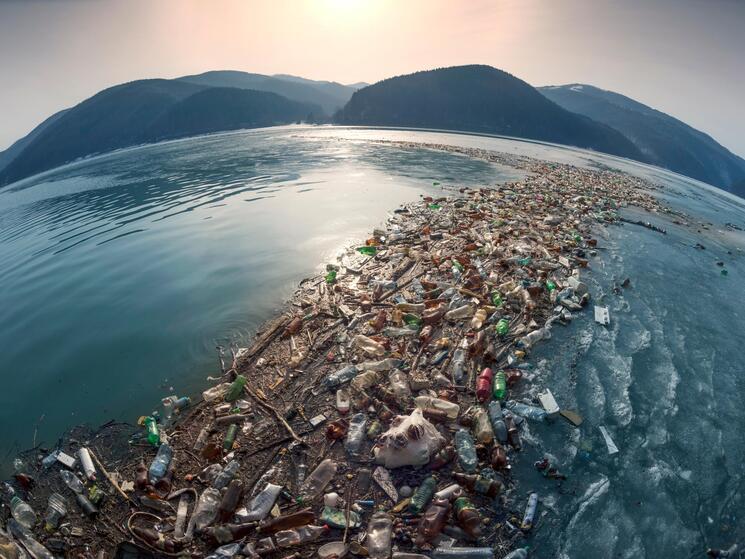
Circularity will require an entirely new way of thinking. (Here’s how to do it!)
- Date: 01 February 2024
- Author: Judith Hochhauser Schneider
All those bottles on beaches, fashion garments in landfills, and obsolete tech devices in dumps or incinerators, didn’t have to meet this fate. They became trash because a plan wasn’t put in place at the beginning of the product lifecycle to recapture the waste and use it to make new products and materials. That’s the basic premise of a circular economy. And it takes responding to external factors, collaborating internally, and coordinating across the entire supply chain to accomplish it well.
Having worked at WWF for over eight years leading large corporate partnerships, I saw that the most sustainable companies didn’t have the biggest sustainability teams. On the contrary, these brands effectively embedded sustainability strategy, and personnel, into each functional area: marketing, supply chain, finance, etc. This is an evolution from the often grassroots, isolated sustainability teams of years prior. The strongest companies strive to meet consumers where they are, satisfy shareholders, hold one another accountable, and meet government compliance rules.
As we think about creating a truly circular economy, the level of complexity increases as do calls for new ways to work together to drive change. Internal and external coordination must be ratcheted up. There is no room for siloed thinking; change requires a systems-thinking approach to understand the interdependencies within and outside of an organization. Additional tools are needed, especially in a rapidly changing landscape with circularity expectations from regulators, shareholders, and consumers.
Governments
One significant shift currently underway involves the ways that governments are tackling one of the major challenges in circularity: plastic waste.
Governments at the local, state, and national levels are addressing plastic waste in different ways. Perhaps most significant is the Global Treaty to End Plastic Pollution, which is establishing a set of legally binding global agreements that delineate the steps and timelines necessary to change the production and consumption of plastics. Along with domestic and state legislation, initiatives like this will lead to regulatory measures. Encouraging creative thinking requires internal collaboration among stakeholders and countless others to make that shift from a voluntary to a regulatory landscape.
Companies
As Peter Drucker famously said, “culture eats strategy for breakfast.” Business change as critical as circularity requires implementing a change in corporate culture. One of the best ways to shift culture is to involve cross-functional teams in designing process change. It ensures collective understanding, clarity in accountability, and personal responsibility. In addition, making a concerted effort to align incentives across functions will encourage internal behavior change, which is especially effective when linked to corporate targets. The result is more employees taking ownership in their respective roles and encouraging the right conversations at the right levels of seniority.
Consumers
Circularity presents a new way of doing business and engaging customers. It is no secret that companies track legions of customer data before, during, and immediately after a sale. But infrequently do they continue to track that product (and its disposal). And most don’t provide guidance to the end user about how to manage or reclaim a product or its materials. Plus customers can feel abandoned when they are left to dispose or recycle the products and packaging on their own, without the help of the company who produced it or the municipality who collects it. This is a missed opportunity for circularity!
Since leaving WWF, I have been working to launch the Global Impact Collective, a new consultancy that uses systems and design thinking to advance sustainability implementation at pace.
Design thinking is an important process, which sometimes requires an expert guide and facilitator to ignite innovative ideas. The process brings together crucial stakeholders who can contribute different perspectives to the same problem. And when used well, it has become a powerful tool to drive alignment, improve collaboration, and surface truly innovative solutions.
At The Collective, we bring together key teams, including product design, sourcing, packaging, marketing, sales, finance, and others – people who don’t often find themselves in the same room at the same time, focused on problem solving. This process gives organizations the space and speed to develop many creative ideas and solutions at once. And because all the stakeholders are in the room, new solutions are socialized and pre-vetted for testing.
Consumers, governments, and companies can’t solve the plastic waste problem on their own. Coordination across sectors will be critical to understanding the perspectives of different stakeholders and making sector-wide progress. But before cross-sector collaboration happens, internal coordination within your organization is key. When you bring design thinking into the equation it invites an expansive, perspective shifting mindset. It allows you to say, “how might we…”, opening the door for broader, more creative solutions that are more inclusive and engage players throughout the value chain.
Join Us!
Come see it in action on February 12 at GreenBiz24 when the Global Impact Collective leads a design thinking workshop called Design Swarm™ for Circularity: Harnessing Our Collective Genius. Be part of the experience as sustainability leaders unpack how to partner with internal stakeholders to creatively solve the issue of circularity. This fast-paced, creative session, which will harness the creativity of the minds in the room to generate a large volume of breakthrough ideas at a very rapid speed to address internal coordination in your organization. We will explore circular economy from the perspective of Food & Bev, Technology, Fashion thanks to our esteemed lightning speakers: Erin Simon (WWF), Meghann Glavin (Starbucks), Jim Hanna (Microsoft) and Jennifer DuBuisson (Levi Strauss & Co).
We’d love to see you at Greenbiz24. Please reach out to let us know if you’ll be there so we can send you workshop materials in advance. Please join us!
The views expressed in this post do not necessarily reflect those of WWF.